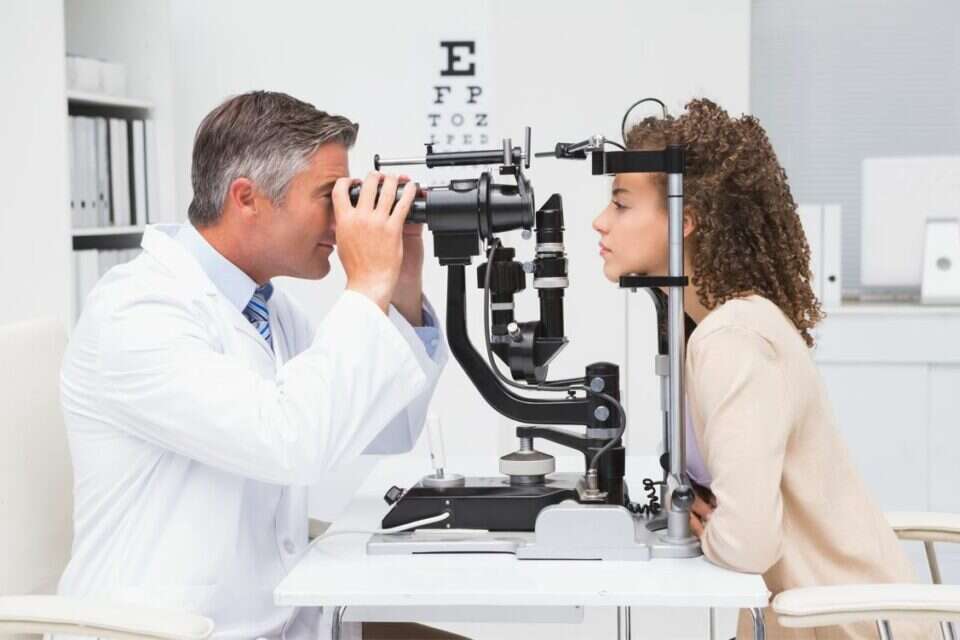Check or not check?
This question
vision is one of the most vital senses for us.
From the moment we are born, we learn to recognize and discover the world through the eyes, and they are partners in almost everything we do.
To maintain eye health, it is important that we keep a routine vision test in our diary once a year, which will help us continue our lives sharp and focused.
Look your children in the eye
If in the past they used to associate vision problems with old age, then today the awareness of vision problems from a young age is higher.
From birth to adolescence, our visual system undergoes constant changes, so periodic examination is very important at a young age, to avoid abnormal development of the visual system and lazy eye. Too close to the screen, with a lot of blinking and lack of attention and concentration.
Tested early, detect in time
Undiagnosed vision problems can cause us to overwork accompanied by headaches, and in children they can even cause developmental damage to the visual system (lazy eye) or cause ADHD.
A routine vision test will allow us to know what the vision condition is, will help diagnose medical conditions like dry eye, and will help in early detection of eye diseases.
Who is being tested?
A vision test is a simple and painless procedure.
Until the age of six, children are referred for a vision test by a specialist doctor, and from the age of 7 onwards the test can usually be performed by a qualified optometrist.
It is important to note that an optometrist is not a laboratory technician, but a qualified professional, trained to treat vision problems.
In addition, he can identify pathologies or risk factors, and refer to a professional for further treatment.
How is a routine check performed?
questioning
At the beginning of the test, the optometrist will ask to find out the nature of the problem for which we came for the test and ask details such as: age, health problems, how we feel about distance vision, computer and reading, how night vision compared to daytime, what is our occupation and hobbies ... Our hobbies are important in determining the right solution to a vision problem.
In addition, if we arrived with glasses, the existing prescription will be checked.
Visual acuity
test This is the classic test we are all familiar with, which involves reading numbers and letters in descending size from a filter board.
During the test we are asked to close one eye at a time, and read the numbers or letters.
This test gives the optometrist an overall idea of our vision condition and whether further correction is required.
Objective examination
This is a vision test whose results indicate the refractive power of the eyes.
The test is performed by an AUTOREFRACTOMETER or by a manual device called a RETINOSCOPE.
It is important to note that this is not a final prescription for vision correction, but another tool in the hands of the optometrist to make the best decision in determining the final prescription.
Subjective
test This is the most important test.
In this test the optometrist will ask us how we see and whether we are comfortable in different situations (not always the comfort with a subjective prescription will be the same as the objective prescription).
Depending on the answers, the optometrist will replace the lenses through which we look at the test until a prescription is given that gives the optimal sharpness and comfort.
Determining a final prescription
The optometrist will determine what is the right prescription for us, based on our needs, previous glasses, and the objective and subjective test results we have done.
It is important to understand that the final prescription is the result of the optometrist's judgment, obtained on the basis of all tests, and therefore there may be a difference between a prescription given by one optometrist and a prescription given by another.
When it comes to our eyes, it's good to have someone to trust
It is recommended to perform a vision test once a year.
Even if there are no pre-existing symptoms, it is recommended to be tested, as sometimes vision problems develop without us noticing them and it is better to detect them before they worsen. Unexplained fatigue towards the evening, double vision, the appearance of black spots or narrowing of the field of vision - it is recommended to go to the optometrist for an examination at any time. Our situation.
A qualified optometrist will be able to perform a vision test, adjust our vision aids, and if necessary, refer us for further treatment at the ophthalmologist.
The author of the article is Eitan Halimi, an optometrist at the Super-Pharm Optics network.

